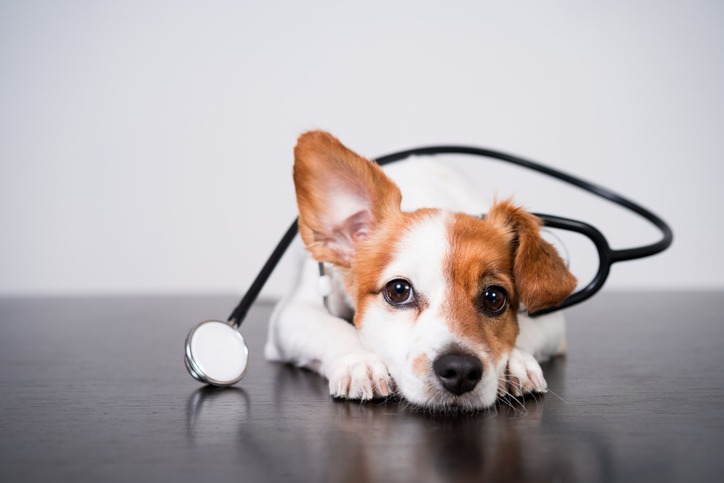Balancing Pet Health: Routine Checkups and Emergency Plans

Maintaining a balanced pet healthcare schedule is vital for ensuring your pet’s long-term health and readiness in case of emergencies. This guide will help you create an effective healthcare plan for your pet, including routine check-ups, vaccinations, parasite prevention, and emergency preparedness.
1. Research and Select a Trusted Vet
Choosing a reliable and well-reviewed veterinary service is the first step in your pet’s healthcare journey. Look for a veterinarian with the right credentials, modern facilities, and positive reviews from other pet owners. Building a relationship with a trusted vet ensures consistent care and reliable advice.
2. Schedule Routine Health Check-Ups
Regular vet visits are crucial for early disease detection and maintaining overall wellness. Depending on your pet’s age and health condition, schedule check-ups at least once a year for younger pets and more frequently for older pets or those with health issues. Routine check-ups help monitor your pet’s health and catch potential problems early.
3. Plan and Schedule Vaccinations
Timely vaccinations are essential for preventing many common pet diseases. Work with your vet to create a customized vaccination calendar based on your pet’s specific needs. Regular vaccinations protect not only your pet but also the wider pet community by preventing the spread of contagious diseases.
4. Establish a Parasite Prevention Routine
Parasites can cause significant health issues for pets. Preventive measures like monthly medications and environmental management can keep parasites at bay. Discuss the best parasite prevention methods with your vet to ensure your pet remains parasite-free.
Regular visits to a trusted pet hospital in Tucson, AZ, can help ensure that your pet stays up-to-date with their vaccination schedule and parasite prevention routines. These frequent check-ups allow the veterinarian to monitor your pet’s health status closely and make adjustments as needed.
5. Recognizing the Signs of Pet Emergencies
Being able to recognize the signs of a pet emergency can make a crucial difference in your pet’s health outcomes. Common emergency signs include difficulty breathing, sudden lethargy, excessive bleeding, and severe vomiting or diarrhea. Knowing these symptoms helps you act quickly and seek emergency care.
6. Create an Emergency Plan
Having a comprehensive emergency plan is essential. Start by identifying a local emergency vet who operates 24/7. Keep the veterinarian’s contact information easily accessible in your home and on your phone. Familiarizing yourself with basic pet first aid can also be immensely helpful during urgent situations.
Pet owners should always be prepared by having an emergency plan in place. Identifying an emergency vet who is available 24/7 is crucial. This preparedness can make a significant difference in handling unexpected situations efficiently and effectively.
7. Tips and Reminders
Here are some quick tips to help you stay organized:
-
Keep a pet health record for documenting all vet visits, vaccinations, and treatments.
-
Set reminders for upcoming appointments and medication refills.
-
Regular grooming and at-home health checks can help you notice any changes in your pet’s condition early.
Incorporating a regular schedule for pet vaccinations and parasite prevention not only keeps your pet healthy but also helps avoid unforeseen medical expenses. Check out this page for more tips. Maintaining consistent communication with your veterinarian ensures that your pet’s healthcare routine is as effective and stress-free as possible.
8. Checklists
To make your pet’s healthcare management easier, download and use this checklist:
-
Track vet appointments
-
Record vaccination dates
-
Keep emergency contact information
-
Set reminders for medication
9. Nutrition and Weight Management
A balanced diet and appropriate weight management are critical components of your pet’s overall health. Consult your vet to determine the best diet based on your pet’s age, breed, and health condition. Proper nutrition supports optimal growth, energy levels, and immune function. Regularly monitor your pet’s weight and body condition to prevent obesity, which can lead to various health issues. Your vet can provide guidance on portion sizes, feeding routines, and any necessary dietary supplements.
10. Exercise and Mental Stimulation
Physical exercise and mental stimulation are essential for your pet’s well-being. Ensure your pet receives adequate physical activity through daily walks, playtime, and interactive toys. Exercise helps maintain a healthy weight and promotes cardiovascular health. Additionally, mental stimulation prevents boredom and behavioral problems. Enrich your pet’s environment with puzzle toys, training sessions, and new activities to keep their mind engaged. Discuss with your vet the best exercise and enrichment routines tailored to your pet’s needs and abilities.
Final Thoughts
To recap, creating a balanced pet healthcare schedule involves several important steps. First, select a trusted veterinarian who you can rely on for expert advice—schedule routine health check-ups to monitor your pet’s overall well-being. Plan vaccinations to protect against diseases. Establish a parasite prevention routine to keep your pet safe from infestations. Learn to recognize emergency signs and create an emergency plan. By staying diligent and proactive, you can ensure your pet’s long-term health and well-being.


